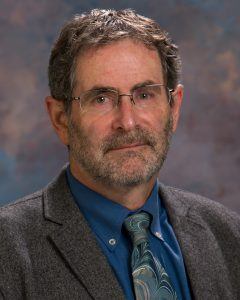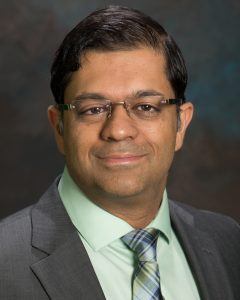
Barrow to Participate in First Platform Trial for ALS
Every 90 minutes, someone learns they have ALS and another person dies from the disease. People with ALS live about two to five years on average, and existing medications can only moderately slow the progression.
These statistics illustrate the need to accelerate the study of promising ALS drugs. That’s why Barrow Neurological Institute and 53 other sites around the United States are collaborating to launch the first-ever platform trial for ALS.
Also known as amyotrophic lateral sclerosis or Lou Gehrig’s disease, ALS is a progressive neurodegenerative disease that affects motor neurons. When these nerve cells deteriorate and die, they are no longer able to initiate and control muscle movements. This causes the muscles in the body to waste away, eventually depriving people of their ability to walk, speak, swallow, and breathe.
The Sean M. Healey Center at Massachusetts General Hospital worked with the Northeast ALS (NEALS) Consortium to assemble a team of experts from around the country to rethink the design of early-phase trials for the disease, accelerate the path to effective treatments, and increase patient access to trials.
Barrow is the only participating site in Arizona. The Barrow Clinical Research Organization is collaborating with the Healey Center to support the study operations and to provide clinical monitoring and outcomes training for all participating sites.
“I believe the start of the platform trial project represents a major step in improving the speed and efficiency of ALS clinical trial conduct, which will hopefully lead to faster drug development and more effective agents to treat ALS coming to patients more quickly,” said neurologist Dr. Jeremy Shefner, who specializes in ALS and serves as the chair of neurology for Barrow.
How Platform Trials Work
While traditional clinical trials evaluate only one drug at a time—an expensive process that can take years to complete—platform trials test multiple drugs simultaneously.
A central institutional review board (IRB) approves the overall protocol for the trial, which includes its objectives, design, methodology, and statistical considerations. This infrastructure remains in place for each drug tested and until a drug proves successful in curing ALS.
The trial’s flexible design, borrowed from successes in cancer research, allows drugs to be dropped as they are deemed ineffective and new drugs to be added as they become available. This model closes the gap between identifying a promising therapy and actually testing it.

Kemper and Ethel Marley Professor and Chair of Neurology
Senior Vice President, Barrow Neurological Institute
Executive Chair of Neurology, University of Arizona – Phoenix
“As the vision of the platform trial is to always be enrolling, there is no downtime that is usually associated with study startup and closeout,” said Dr. Shafeeq Ladha, director of the Gregory W. Fulton ALS and Neuromuscular Disease Center at Barrow.
Rapidly testing therapies not only provide answers faster, but it also reduces costs and ensures we continuously advance our understanding of the disease itself.
Also, because platform trials use a shared control group for all drugs, they reduce a participant’s chance of being on a placebo instead of active treatment. This also means fewer patients need to be enrolled—another factor in helping to accelerate the trial.
“It greatly increases the throughput of promising drugs,” Dr. Ladha said. “This has become a problem as science has presented us with more drugs than we have patients to test in an efficient way.”
However, comparing each drug to the same placebo group means all treatment regimens must be similar to each other and have similar inclusion criteria.
Drugs that are ready for Phase III studies are not good candidates for platform trials, as platform trials are best suited for quickly assessing the viability of new drugs before they can move to Phase III.
Additionally, platform trials rely on having a large pipeline of promising drugs so that there are no long gaps.
An initial call for drug proposals yielded an influx of ideas from almost 30 participants in 10 countries. The Healy Center created a committee to select the top five drugs to launch the trial with. The applicants were mainly small biotechnology companies with promising ideas but without the funds to set up clinical trials themselves.
The HEALEY ALS Platform Trial has received funding from the Healey family and friends, AMG Charitable Foundation, TackleALS, and the ALS Association.
The primary outcome of the trial will be whether or not the drugs boosted a functional rating score for ALS after six months. This widely used score is determined through assessments of speech, swallowing, walking, breathing, handling food utensils, dressing, and other daily functions.
“The NEALS platform trial will change the paradigm of how we do ALS clinical research,” Dr. Ladha said. “It creates a unique partnership between industry and academics and helps to bring drugs to market in a collaborative way, balancing the business and the science.”
Enrollment is expected to open in the spring. For more information about the trial, email Fulton.Research@DignityHeath.org.

